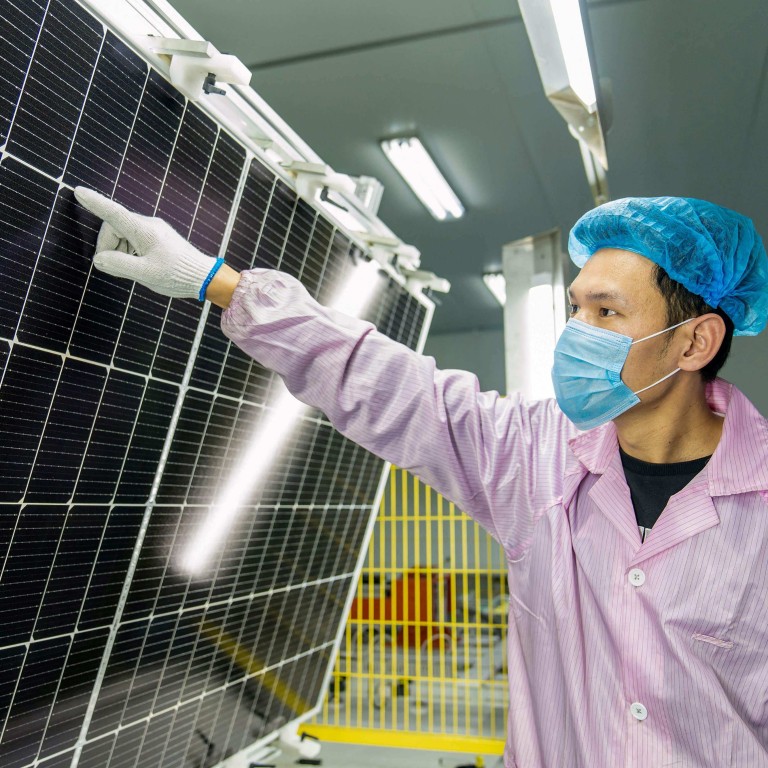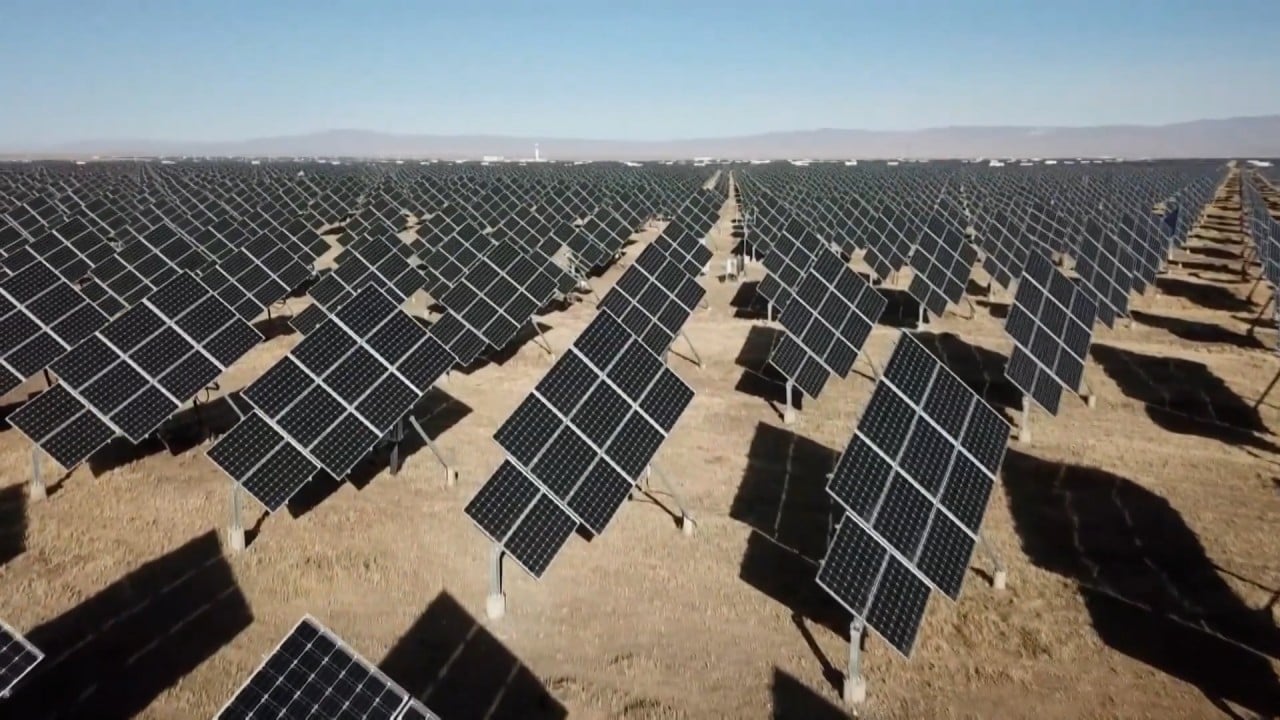
GCL Technology to expand into semiconductor-related business with eye on US$1.9 billion joint venture in Inner Mongolia
- Firm formerly known as GCL-Poly Energy plans a joint venture with TCL Technology to develop a plant for manufacturing higher purity polysilicon
- Venture will assess the plan to develop a plant at a cost of about US$1.9 billion in northern autonomous region of Inner Mongolia
GCL Technology, one of China’s largest producers of raw materials for solar panels, is planning to broaden its business by making polysilicon for applications in electronic and solar-energy industries.
The Hong Kong-listed firm, formerly known as GCL-Poly Energy, signed a framework agreement with semiconductor display and materials maker TCL Technology. They aim to invest 12 billion yuan (US$1.9 billion) in a silicon materials plant in Hohhot, the capital of the northern autonomous region of Inner Mongolia.
“The parties intend to carry out in-depth cooperation through investing in new [solar-grade] and electronic-grade silicon material projects,” GCL said in an exchange filing late on Tuesday. The Jiangsu-based firm currently focuses on developing solar-panel materials and solar farms.
Polysilicon is the feedstock for both the solar and semiconductor industries. It has higher purity for making semiconductor chips, compared with polysilicon used in solar panels.
TCL, based in southern Guangdong province, said the collaboration is part of the group’s strategy to develop core technologies in semiconductor display, semiconductor materials and solar energy applications.
It would also help the company boost its green efforts to align with the nation’s goals for reaching peak carbon emissions by 2030 and carbon neutrality by 2060, it said in a separate statement.
GCL and TCL also signed separate agreements with the governments of Inner Mongolia and Hohhot to carry out their joint investment, which would typically receive a policy incentive. Their venture will be implemented by expanding TCL’s existing facilities into an “internationally competitive” monocrystalline silicon production site.
Monocrystalline is a material for silicon-based integrated circuits used in all modern electronic equipment, and a light-absorbing material used in solar panels.
The proposed GCL-TCL project will include facilities to produce 100,000 tonnes of upstream material granular silicon annually, 10,000 tonnes of downstream electronics-grade polysilicon and other downstream solar panel materials.
The manufacturing of solar and semiconductor polysilicon has been mixed in newly built facilities to gain efficiency, according to Daiwa Capital Market. Daqo New Energy, for example, has an annual 10,000-tonne electronic-grade line and a 100,000-tonne solar-grade line.
It is common practice for newly expanded solar-grade polysilicon to be combined with electronic grade polysilicon, usually in a 10-to-one proportion, said Dennis Ip, regional head of utilities research at Daiwa.



